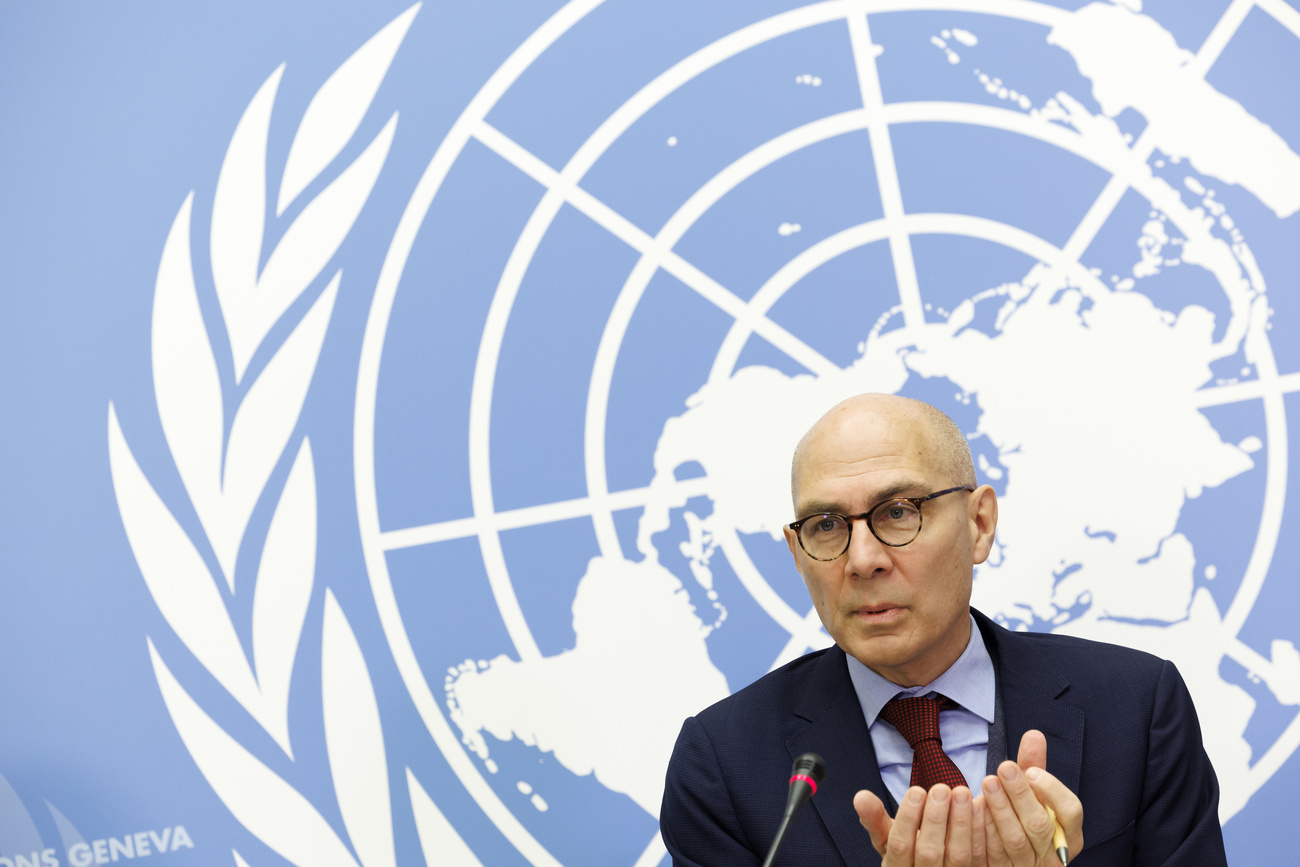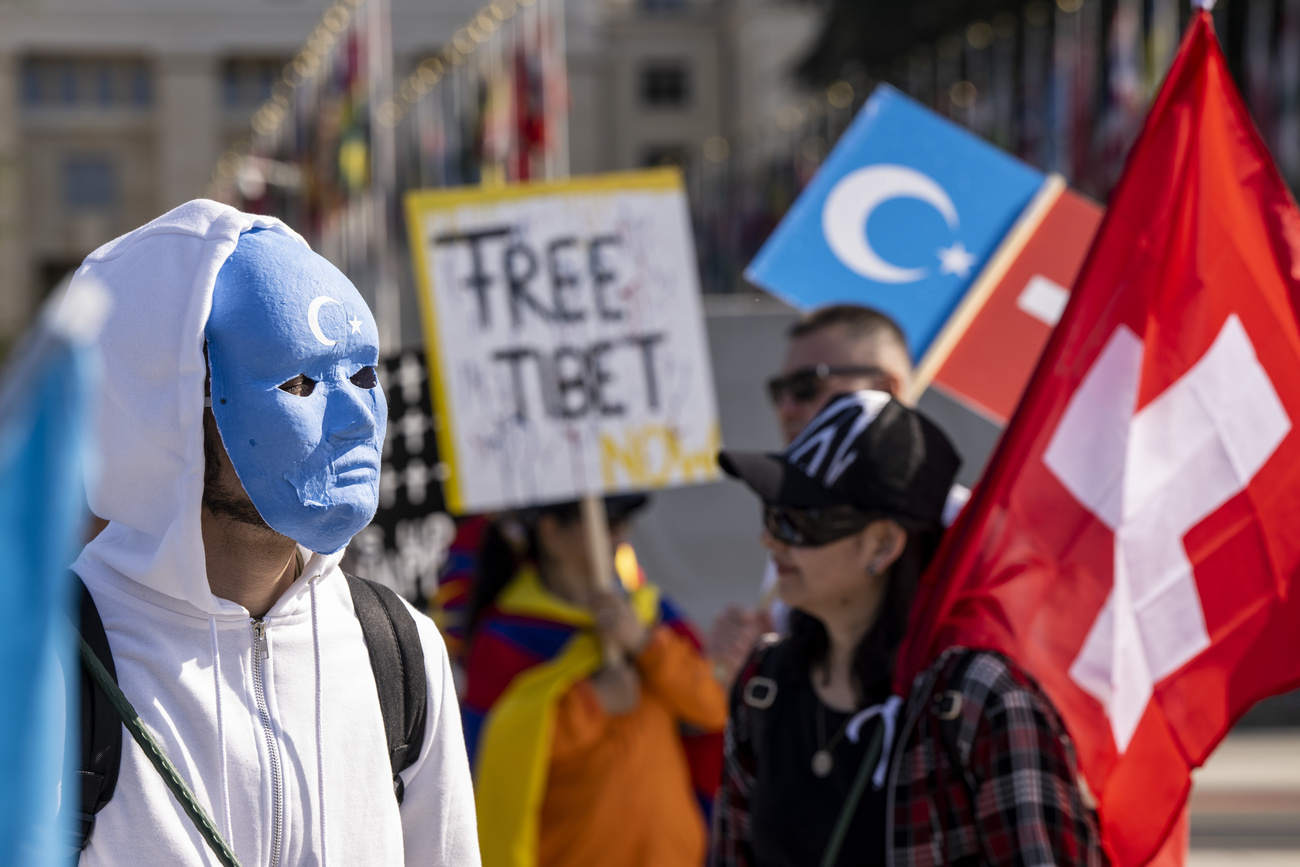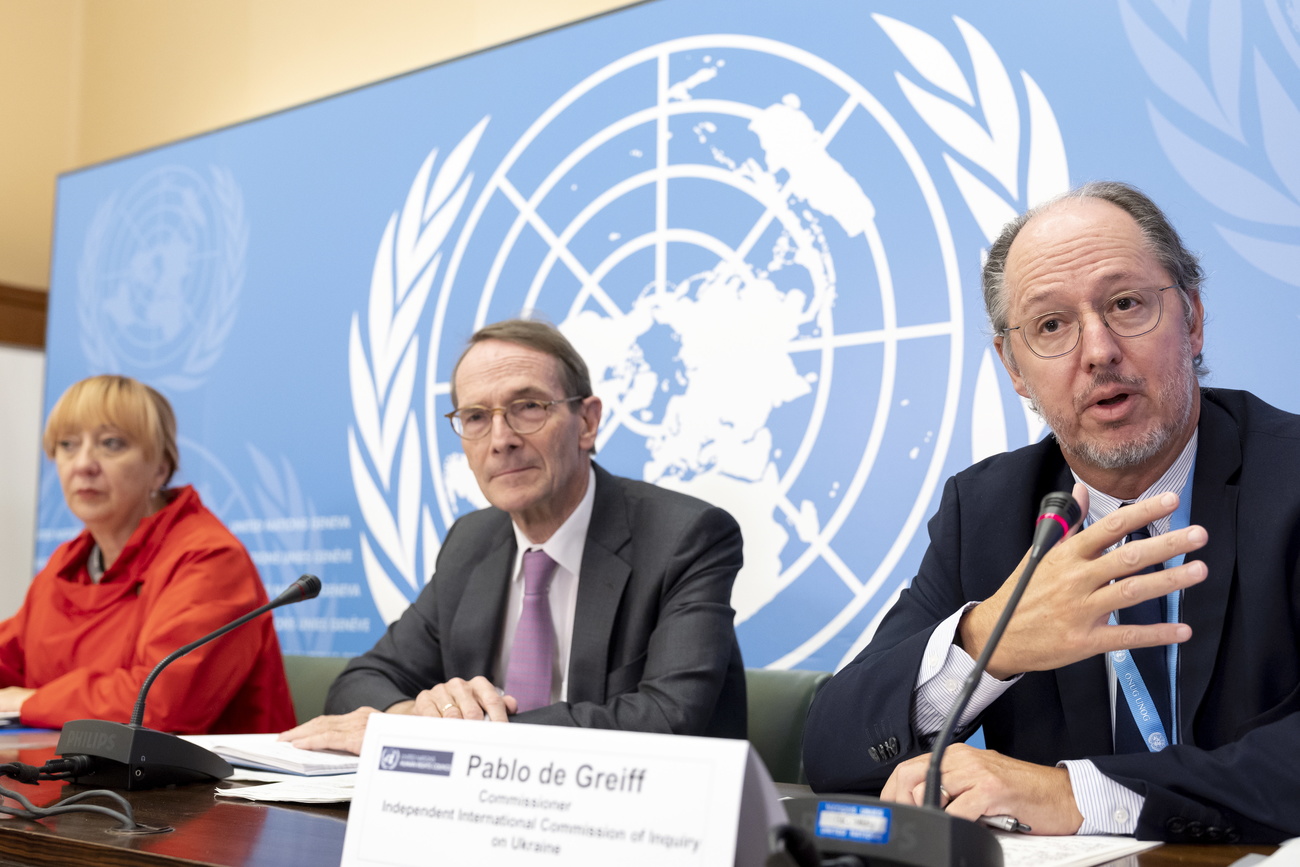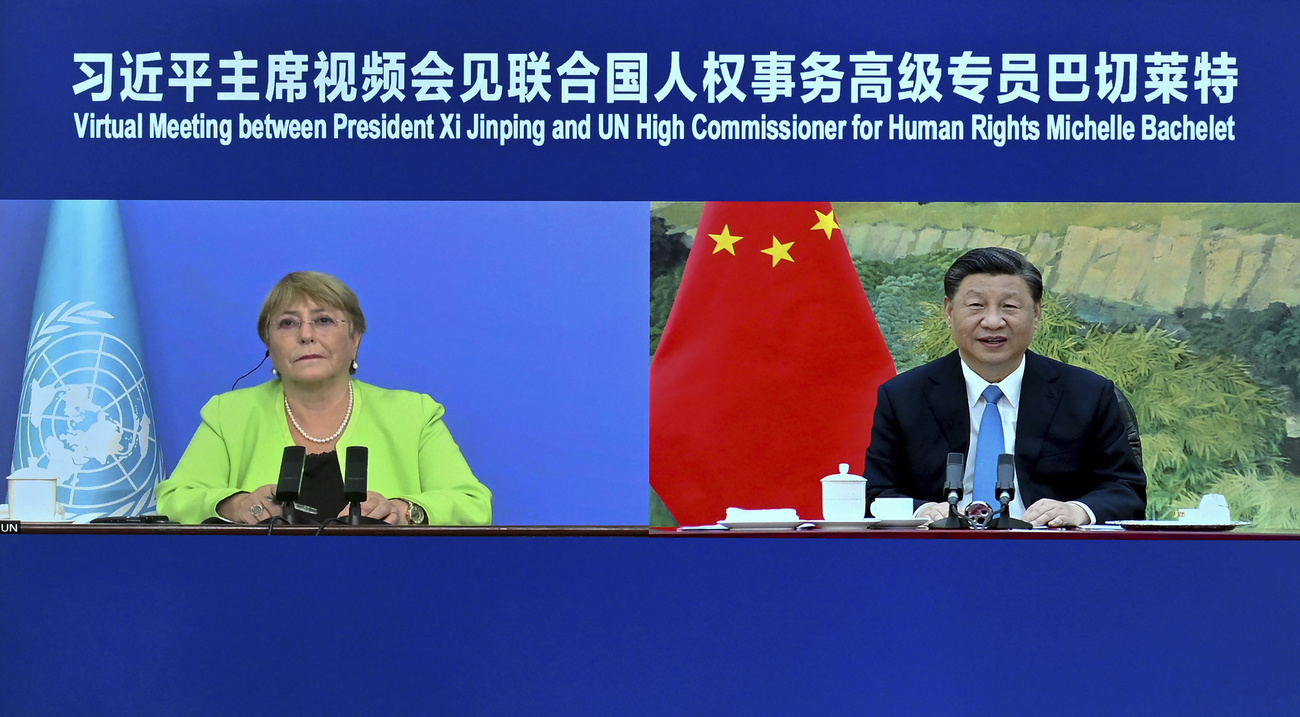UN human rights chief calls for end to Ukraine war, Iran executions

UN High Commissioner for Human Rights Volker Türk has urged an Iranian moratorium on executions, saying his office is in touch with the authorities.
This comes after the first execution of a protester during the current wave of unrest. Mohsen Shekari was hanged in Iran on Thursday for being a “rioter”.
Speaking to a press conference in Geneva on Friday, Türk also renewed his call for an end to the war in Ukraine, describing how he was forced into an air raid shelter in Kyiv on Monday with other human rights defenders because of Russian missile strikes. Asked if he thought Russia was aware of his presence as it sent missiles, he said he interpreted it only as part of “a war which must be ended”.
“People regularly go into shelters and it happened to me,” he told the press. “It has become normal for them, but it shouldn’t become normal.”
Türk also visited Bucha, where his office has documented mass killings of civilians allegedly by Russian soldiers, and Izyum, where he said he saw “the same picture of enforced disappearances and executions”, if on smaller scale.
Mass killings
His four-day visit to Ukraine this week coincided with the release of a new reportExternal link by the UN Human Rights Monitoring Mission in Ukraine, which said the UN has so far documented the violent deaths of 441 civilians (341 men, 72 women, 20 boys and eight girls) in three regions of northern Ukraine in the initial six weeks of the Russian invasion.
It said the real figures “are likely to be considerably higher as work is still ongoing to corroborate an additional 198 killings that occurred in the Kyiv, Chernihiv and Sumy regions of Ukraine occupied by Russia in the initial stages of the ongoing armed attack against Ukraine”.
“I have seen for myself the horrors, suffering and the daily toll that this war against Ukraine by Russia has had on the people of this country,” Türk told a previous press conference in KyivExternal link on Wednesday.
In Geneva he stressed that it was not only a human rights crisis but “a war with global implications”. He said his visit included Moldova, host to 94,000 refugees from Ukraine, which was also suffering blackouts because of the war as temperatures plunge below zero.
China
Asked about his approach on China, Türk said the UN’s August 30 report on Xinjiang, released in the final minutes of his predecessor’s mandate, was “very important”, and raised serious human rights concerns.
“My focus is following up on the recommendations in the report. I will continue to engage with the authorities,” he said, adding that “hope springs eternal” for changes within the country.
The UN report on the human rights situation of China’s Uyghur Muslim minority found evidence of abuses which it said could amount to crimes against humanity. A Western-led attempt to get the report discussed in the Human Rights Council in October failed – only the second time in the Council’s 16-year history that such a motion has been voted down.
Türk’s predecessor, Michelle Bachelet, stepped down at the end of August amid criticism by human rights organisations for being too soft on China.
Human Rights Day
Holding the press conference ahead of International Human Rights DayExternal link on December 10, Türk also addressed various other human rights situations around the world, including Afghanistan and the dire situation of women, and Haiti, where armed gangs are running riot in the capital.
Human Rights Day marks the UN’s adoption in 1948 of the Universal Declaration of Human RightsExternal link. In 2022 it is being marked under the theme of “dignity, freedom and justice for all”.
Türk’s press conference also marked the start of a campaign around the Declaration, which will be 75 next year. “If you read the Universal Declaration of Human Rights, you will see that it is a very comprehensive, miraculous text,” Türk told journalists, saying it should be seen “not as a relic” but as holding fundamental principles that provide answers to present and future problems.
Asked if he would change anything in the Declaration drawn up 75 years ago, he said he would rather appeal for it to be interpreted in light of present concerns. “I would say to every leader today, please read the Universal Declaration of Human Rights, use it, and think of it as your obligation to act.

In compliance with the JTI standards
More: SWI swissinfo.ch certified by the Journalism Trust Initiative













You can find an overview of ongoing debates with our journalists here . Please join us!
If you want to start a conversation about a topic raised in this article or want to report factual errors, email us at english@swissinfo.ch.